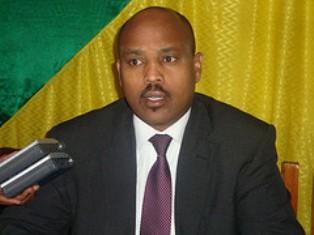Who belongs? The politics of citizenship in Africa – Debate Overview
Millions of people in Africa are stateless. Some because their births were never recorded, others because they belong to the ‘wrong’ ethnic group. Civil conflicts in Cote d’Ivoire, the Democratic Republic of Congo and numerous other countries have been fuelled if not created by pernicious citizenship policies that sever the link between certain parts of the population and the state. The politics of statelessness and citizenship discrimination in Africa are complex and potentially explosive. This debate explores some of the main themes, including:
The Nubian predicament: A story about colonial legacy, discrimination, and statelessness (Sebastian Kohn)
Thousands of Nubians today live in a legal limbo, with no access to the rights that are afforded to Kenyan citizens, such as freedom of movement and diplomatic protection, or the benefits of health care and employment in the public sector.
Even Nubians who have managed to obtain identification find their citizenship questioned when they need to renew documents, and so live in a perpetual state of uncertainty.
Will the new constitution lead to a more peaceful Kenya? (Thomas Obel Hansen)
Wednesday, 4 August 2010, will indisputably be a date for future generations of Kenyans to remember. Following more than 20 years of debate and several attempts at passing a new constitution, Kenya finally succeeded. A united parliament, with President Mwai Kibaki and Prime Minister Raila Odinga together heading the yes campaign, and an electorate that showed significant support for the new constitution mean that fundamental changes in governance will now occur in Kenya.
Nationality and the manipulation of ethnicity in North Kivu: A toxic mix (Dr Lucy Hovil)
The relationship between nationality and ethnicity in Africa’s Great Lakes region is much debated – sometimes verbally, but more often violently. And this relationship is also a key component to any discussion on citizenship. The position of ethnicity vis a vis national citizenship has allowed it to become an object of manipulation for political elites and a substantial source of instability. As a result the role of ethnicity within the national arena remains unresolved, and this ambiguity is now a critical driver in cycles of violence in the Democratic Republic of Congo and throughout the region.
A Gender Perspective on Citizenship in Africa (Prof. Amanda Gouws)
So far the debate has focused on citizenship as a status within the borders of certain nation states in Africa and the dire consequences of the inability to obtain such status. Yet, legal rights and identity documents that indicate citizenship is only one dimension of citizenship. If we would apply a gender lens to the debate around citizenship in Africa it exposes inequalities locked into the nature of citizenship (as status) that is linked to the inability to claim rights and participate as agents of citizenship.
Being a Kenyan (L. Muthoni Wanyeki)
The Harmonised Draft Constitution’s provisions on citizenship go a long way to resolving the problems of belonging to and identification with Kenya that pertain today. Through those provisions, Kenyans will finally propel themselves into the 21st century world””which is a world far beyond the limited conception of an ethnically and racially homogenous and patriarchal single-nation state. If it were to be on those provisions alone that the referendum’s outcome was to be determined, the Harmonised Draft Constitution would and should pass.
Citizenship and land: a potent relationship (Dr Lucy Hovil)
Recent research in Burundi on the repatriation of refugees has highlighted the strong link between land and citizenship. The research tracked the experience of refugees returning to southern Burundi and (re)claiming their citizenship. Most had been living in exile in Tanzania – some since the early 1990s, and others since 1972. Some were born in exile and had never been to Burundi before. Others left when they were children. But all of them had a strong notion that returning to Burundi signified an end to exile and an opportunity to finally become citizens of their homeland. And the measure of that renewed bond between citizen and state was their ability to recover land.
Citizenship – The most important right of all (Bronwen Manby)
“Give us our identity cards and we hand over our Kalashnikovs”, said the leader of the rebel forces in Cí´te d’Ivoire. Those who have never been deprived of official papers may find it hard to imagine the powerlessness that results: powerlessness that can and does lead people to take up arms. Even in the poorest countries, a passport or identity card does not just provide the right to travel, but forms the basis of the right to almost everything else.
The Right to Citizenship under International Law (Julia Harrington)
Article 15 of the Universal Declaration of Human Rights (UDHR) says “[e]veryone has the right to a nationality” and that “[n]o one shall be arbitrarily deprived of his nationality nor denied the right to change his nationality”. Most articles of the UDHR are considered customary international human rights law. The right to citizenship/nationality is clearly stated. So why is there a global, and particularly African, problem with statelessness?
Africa Needs a Regional Treaty to End Civicide (Chidi Anselm Odinkalu)
There are two ways to kill in human community: you can kill a human being or you can kill the citizen. The first is biological; the second is sociological but no less real. The former is called homicide; the latter is civicide. Both are wrong, unlawful, and criminal. In addition, civicide is an egregious act of abuse of power.
This debate is organized by the Open Society Foundations. In October 2009, one of the Open Society Foundations’ projects on statelessness and citizenship discrimination in Africa resulted in Struggles for Citizenship in Africa, a book published by African Arguments, and Citizenship Law in Africa, a monograph published by OSI. For more information about the books and related projects visit http://www.soros.org/initiatives/justice/focus/equality_citizenship.
*Sebastian Kí¶hn is program coordinator for equality and citizenship, Open Society Justice Initiative.




